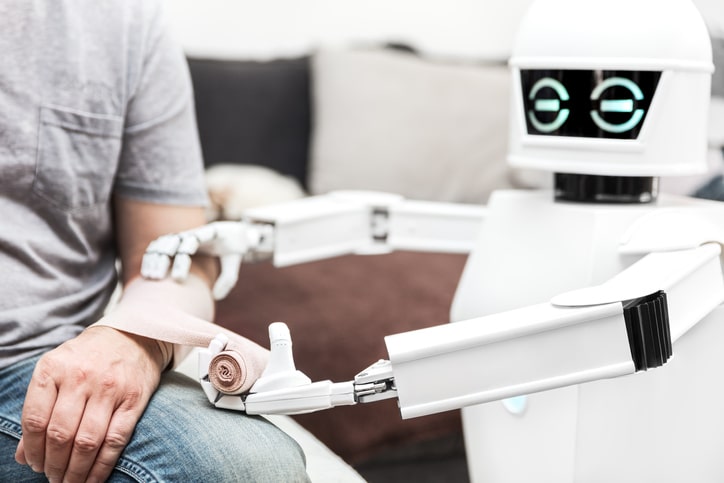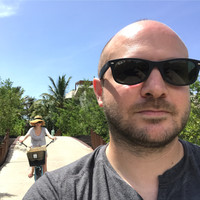How AI Is Saving Orthopedic and Sports Medicine Practices An Hour Each Day

The red tape that normally surrounds the administration of patients in the healthcare industry is a leading cause of physician burnout, as many data experts have noted. Healthcare providers are responsible for a growing volume of paperwork and other off-patient work, and the trend towards greater bureaucracy seems to be inevitable. By some estimates, one hour of bedside patient care results in two hours of paperwork post-visit for the average physician.
Fortunately, AI-driven resources are finding new avenues for physicians to spend less time in front of mounds of paper. With new technology in tow, there are now new ways to administrate patient encounters. Physicians are able to stay in compliance with watchdogs, take smarter notes on patients and provide better overall care.
AI in the Medical Marketplace
One such technology, Suki, is a voice-enabled digital assistant that is made specifically for professionals in the medical industry. Suki is designed to help doctors with patient documentation, giving them more time to focus on the bedside. The technology has the ability to respond to complex voice commands, using those commands to create notes that are clinically accurate. The program also has the ability to enter those notes directly into an electronic health record (EHR) system.
No voice technology is able to completely replace direct input, but it does reduce the need for it immensely. AI also reduces the instance of human error in the data input stage during medical transcription and dictation. The result is a significant time savings when creating and organizing medical documents.
Where the technology succeeds most is in leveraging AI to “teach” the program the idiosyncrasies of the physician that is using it. Eventually, the Suki that is used by an individual physician will become a digital scribe that is unique to that person, fully capable of note taking with very low input from the physician himself. Suki is based on successful commercial digital assistants like Alexa, but the nod to the medical industry is an essential one. Currently, commercial digital assistants do not have the ability to learn from esoteric medical terms or organize records in a way that is specific to medical watchdog standards.
Other speech recognition systems that are focused on medicine include Sopris Health, Deepgram, Saykara, Dragon Medical Practice Edition and Nuance.
The Link Between AI and EHR
Digital assistants for the medical industry must be specific to the industry for another reason – the mandatory use of the EHR in the industry. HIPAA standards now require EHRs to form a significant part of each provider’s data infrastructure. Any note-taking or administration program that claims to help the medical industry must follow the protocols set forth in HIPAA standards.
The fact that Suki and other AI driven technologies kept these standards in mind allowed them to more easily implement new features that are relevant to physicians. These features include customer-facing options such as imaging and X-ray integration and supply-side improvements like improved end-user response times.
EHR technology gives the physician room to dictate data on a patient while in the room seamlessly, but only with the right process in place. Having a digital assistant that is geared to dictate medical records saves huge amounts of time. Many doctors in the orthopedic and sports medicine industries report that they are saving up to an hour of administration time per patient.
With AI and EHR in tow, doctors have the choice to document the patient during the visit or after. This saves a huge amount of time during the initial visit, a time that is usually spent gathering the entire patient history. Experts believe that doctors will save even more time when patients begin to become aware of these technologies. As patients become more open to their use, more doctors will implement them with greater levels of comfort.
Patients can also take command of the notetaking process when AI and EHR are used correctly. As notes are being taken, some doctors actually encourage patients to chime in if there is a point of clarification or some information that has not been considered.
Patient and Clinician Satisfaction
It is well known that doctors are judged by their bedside manner just as much as their technical skill or knowledge of medicine. One of the major benefits of AI is the ability to reduce physician burnout, a phenomenon that reduces the ability of physicians to present a warm, empathetic bedside manner.
Initial studies on Suki show an average note completion time of 1.5 minutes, down from 4.8 minutes per note without Suki or any other voice assistant tech. This adds up to approximately one hour of time saved per day. More importantly, it increases the time that doctors can spend truly connecting with patients during the encounter.
Future Success
Although the advantages of AI are well documented, its success depends on a number of factors. Experts have stated that vendor support is essential for more widespread adaptation of the technology. There must also be more attention paid to the unique needs of the physician practice.


